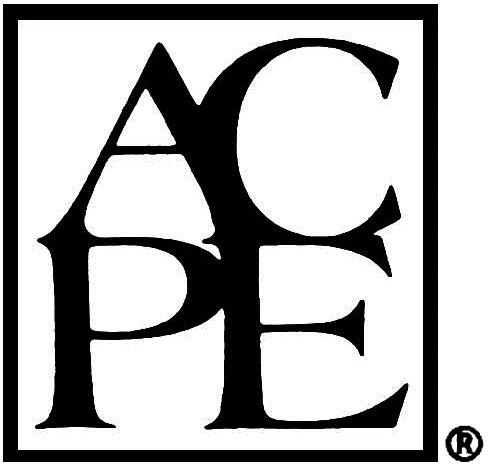NCCN 2017 Congress Series™: BREAST CANCER with Updates from 2016 San Antonio Breast Cancer Symposium
Breast cancer is the most common malignancy in women in the United States and is second only to lung cancer as a cause of cancer death. The treatment of breast cancer is rapidly evolving. Results from numerous clinical trials continue to expand new therapeutic options, treatment and risk reduction strategies, and diagnostic/prognostic tools. Healthcare professionals need to be educated on current and emerging scientific data to make evidence-based treatment decisions and to provide optimal care for patients with breast cancer.
The NCCN 2017 Congress Series™: Breast Cancer with Updates from the 2016 San Antonio Breast Cancer Symposium will provide expert insights on the current standard of care for patients with breast cancer and include the latest clinical research updates from the 2016 SABCS to assist clinicians in formulating breast cancer management strategies.
Target Audience
This educational program is designed to meet the educational needs of oncologists, nurses, pharmacists, and other healthcare professionals who manage patients with breast cancer.
Learning Objectives
Following this activity, participants should be able to:
Management of Ductal Carcinoma In Situ (DCIS)
• Assess the risk of recurrence and select optimal treatment strategies for patients with DCIS.
• Discuss and debate the rationale for adjuvant radiation therapy to treat patients with DCIS.
Adjuvant Radiation Therapy for Early Stage Breast Cancer
• Recommend individualized radiation therapy based on patient and tumor characteristics of patients with early stage breast cancer.
• Explore techniques to optimize delivery of radiation therapy and evaluate clinical data supporting regional nodal radiation and alternatives to conventional whole breast radiation therapy.
Surgical Management of the Axilla in Early Stage Breast Cancer, Including SABCS Updates
• Develop an evidence-based approach for the management of the axilla in patients with early stage breast cancer.
• Discuss new and emerging data in the treatment of patients with early stage breast cancer and integrate key findings into clinical practice.
Role of Molecular Assays in the Management of Early Stage Breast Cancer
• List available molecular assays and compare their use in assessment of risk of recurrence.
• Use molecular assays appropriately to assess risk of recurrence and individualize adjuvant therapy recommendations.
Imaging Studies in Breast Cancer
• Evaluate the role of various imaging modalities for diagnosis and workup of breast cancer.
• List clinical indications for the use of breast MRI to diagnose breast cancer.
Adjuvant and Neoadjuvant Therapies for Breast Cancer, Including SABCS Updates
• Recognize key patient and clinical factors that influence treatment selection for patients with early-stage breast cancer.
• Select appropriate clinical tools to estimate risk of relapse and the benefits of adjuvant systemic therapy.
Breast Cancer Risk Reduction Strategies
• Outline the currently available risk reduction strategies for breast cancer.
• Assist individuals considering chemoprevention in shared decision making by appropriately informing them about the associated risks versus benefits of available therapies.
Late Stage Breast Cancer, Including SABCS Updates
• Select evidence-based treatment options for patients with advanced hormone-sensitive breast cancer.
• Compare the risks and benefits of the newer options available for the treatment of patients with HER2-positive disease to limit toxicities and optimize outcomes.
All faculty and activity planners participating in NCCN continuing education activities are expected to disclose any relevant financial relationships with a commercial interest as defined by the ACCME’s, ANCC’s, and ACPE’s Standards for Commercial Support. All faculty presentations have been reviewed for adherence to the ACCME’s Criterion 7: The provider develops activities/educational interventions independent of commercial interests (SCS 1, 2, and 6) by experts on the topics. Full disclosure of faculty relationships will be made prior to the activity.
Physicians
National Comprehensive Cancer Network is accredited by the Accreditation Council for Continuing Medical Education (ACCME) to provide continuing medical education for physicians.
National Comprehensive Cancer Network designates this live activity for a maximum of 5.0 AMA PRA Category 1 Credits™. Physicians should claim only the credit commensurate with the extent of their participation in the activity.
Physician Assistants
AAPA accepts certificates of participation for educational activities certified for AMA PRA Category 1 Credit™ from organizations accredited by ACCME or a recognized state medical society. PAs may receive a maximum of 5.0 hours of Category I credit for completing this activity.
Nurses
National Comprehensive Cancer Network is accredited as a provider of continuing nursing education by the American Nurses Credentialing Center’s Commission on Accreditation.
NCCN designates this educational activity for a maximum of 5.08 contact hours.
Pharmacists
| National Comprehensive Cancer Network is accredited by the Accreditation Council for Pharmacy Education as a provider of continuing pharmacy education. |
NCCN designates this knowledge-based continuing education activity for 5.0 contact hours (0.5 CEUs) of continuing education credit. UAN: 0836-0000-17-013-L01-P
Cancer Registrars
This program supports 5.0 CE hours and has been assigned the following event number: 2017-001.
Available Credit
- 5.00 ACPE contact hours
- 5.00 AMA PRA Category 1 Credit™
- 5.08 ANCC contact hours
- 5.00 Participation
- 5.00 NCRA CE hours
Required Hardware/software
To complete this activity, users will need:
- A device with an Internet connection
- Adobe Reader or other PDF reader software for certificate viewing/printing

 Facebook
Facebook X
X LinkedIn
LinkedIn Forward
Forward